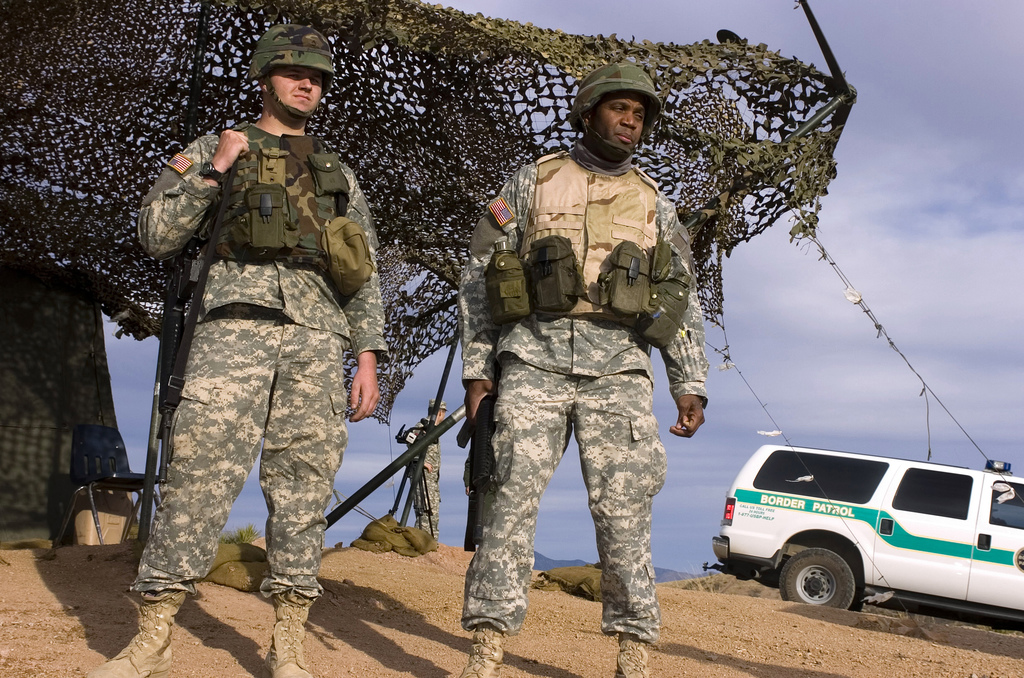- South Texas Students Meet Accordion Music Icons Los Tigres Del Norte In Edinburg Thanks To Khs America/Hohner Alianza Académica Initiative
- Fragile Planet Offers a Nighttime Wildlife Experience
- Falcons Soccer Off & Running
- Cameron County Receives Funds to Improve Two Parks
- Falcons Complete First Half of 32-6A
- School District to Help out Victims of California Wildfires
- Sand Castle Days Continued Despite Unexpected Weather
- Ready for District
- Discussion of Garbage Dumpster Rates, Agreements Between State & City on Highway Regulations, and More
- 31st Annual Shrimp Cook-Off is Right Around the Corner
Militarization of Law Enforcement: A Way of Life for Some Texans
- Updated: September 5, 2014
by John Michaelson
BROWNSVILLE, Texas – While a national discussion is underway on the militarization of local law enforcement in the wake confrontations between protesters and police in Ferguson, Missouri, the issue is old news to residents of the Rio Grande Valley.
Professor Jessica Lavariega Monforti, associate dean of the College of Social and Behavioral Sciences at the University of Texas-Pan American, says over the last decade there’s been a steady build-up of “boots on the ground” at the border.
“There’s an abundance of military equipment and military-grade firepower,” says Monforti. “A lot of that is connected to 9/11 and some of the legislation that was passed following the events on that date, which allow local police to have access to military-grade equipment.”
Monforti will be among the panelists Friday at a discussion on the militarization of the border at the Harlingen Public Library. Guest speakers will include several U.S. congressmen, Cameron County Sheriff Omar Lucio, and economist Dr. Ray Perryman.
Monforti says the militarization of the border has many negative economic and social impacts on residents.
“You have residents living in communities who are not necessarily doing anything wrong, but feel like they have to be far more careful, some even feeling afraid,” she says. “People stop taking their children to school, some of our students stop coming to class, people don’t go out and shop as frequently. There’s just a general sense of heightened anxiety.”
Another person who’s seen the consequences of border militarization is Efren Olivares, senior staff attorney with the South Texas Civil Rights Project. He says communities in the region are being torn apart with the view that immigration is a national threat.
“Turning it into a law enforcement or a national security issue divides communities. Some people do agree with it and some don’t,” says Olivares. “And as you know, anything that is perceived as a threat will always tear apart a community.”
In addition to the growing presence of police and border patrol, about 1,000 National Guard troops are now making their way to the Texas-Mexico border as ordered earlier this summer by Governor Rick Perry.

